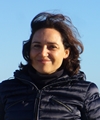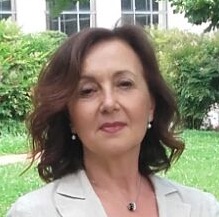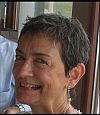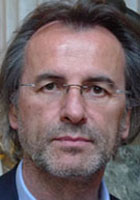Studying at the University of Verona
Here you can find information on the organisational aspects of the Programme, lecture timetables, learning activities and useful contact details for your time at the University, from enrolment to graduation.
Academic calendar
The academic calendar shows the deadlines and scheduled events that are relevant to students, teaching and technical-administrative staff of the University. Public holidays and University closures are also indicated. The academic year normally begins on 1 October each year and ends on 30 September of the following year.
Course calendar
The Academic Calendar sets out the degree programme lecture and exam timetables, as well as the relevant university closure dates..
| Period | From | To |
|---|---|---|
| Sem. IA | Sep 28, 2015 | Nov 8, 2015 |
| Sem. IB | Nov 9, 2015 | Jan 17, 2016 |
| Sem. IIA | Feb 22, 2016 | Apr 24, 2016 |
| Sem. IIB | Apr 25, 2016 | Jun 5, 2016 |
| Session | From | To |
|---|---|---|
| Sessione Estiva | Jun 6, 2016 | Jul 31, 2016 |
| Sessione Autunnale | Sep 1, 2016 | Sep 30, 2016 |
| Sessione Invernale | Jan 23, 2017 | Feb 25, 2017 |
| Session | From | To |
|---|---|---|
| Sesione Estiva | Jul 8, 2016 | Jul 15, 2016 |
| Sessione Autunnale (Solo Scienze del Serv. Sociale: Ven. 04/11/2016) | Nov 21, 2016 | Nov 26, 2016 |
| Sessione Invernale | Apr 3, 2017 | Apr 8, 2017 |
| Period | From | To |
|---|---|---|
| Festa di Ognissanti | Nov 1, 2015 | Nov 1, 2015 |
| Festa dell'Immacolata | Dec 8, 2015 | Dec 8, 2015 |
| Vacanze Natalizie | Dec 23, 2015 | Jan 6, 2016 |
| Vacanze Pasquali | Mar 24, 2016 | Mar 29, 2016 |
| Festa della Liberazione | Apr 25, 2016 | Apr 25, 2016 |
| Festa dei Lavoratori | May 1, 2016 | May 1, 2016 |
| Festa del S. Patrono S. Zeno | May 21, 2016 | May 21, 2016 |
| Festa della Repubblica | Jun 2, 2016 | Jun 2, 2016 |
| Vacanze Estive | Aug 8, 2016 | Aug 15, 2016 |
Exam calendar
Exam dates and rounds are managed by the relevant Humanistic Studies Teaching and Student Services Unit.
To view all the exam sessions available, please use the Exam dashboard on ESSE3.
If you forgot your login details or have problems logging in, please contact the relevant IT HelpDesk, or check the login details recovery web page.
Should you have any doubts or questions, please check the Enrollment FAQs
Academic staff
 donato.desilvestri@univr.it
donato.desilvestri@univr.it
 linda.napolitano@univr.it
linda.napolitano@univr.it
 annamaria.piussi@univr.it
annamaria.piussi@univr.it
 cristina.richieri@univr.it
cristina.richieri@univr.it
Study Plan
The Study Plan includes all modules, teaching and learning activities that each student will need to undertake during their time at the University.
Please select your Study Plan based on your enrollment year.
1° Year
| Modules | Credits | TAF | SSD |
|---|
2° Year activated in the A.Y. 2016/2017
| Modules | Credits | TAF | SSD |
|---|
| Modules | Credits | TAF | SSD |
|---|
| Modules | Credits | TAF | SSD |
|---|
| Modules | Credits | TAF | SSD |
|---|
Legend | Type of training activity (TTA)
TAF (Type of Educational Activity) All courses and activities are classified into different types of educational activities, indicated by a letter.
Specialized English Laboratory (2015/2016)
Teaching code
4S003380
Teacher
Coordinator
Credits
3
Language
Italian
Scientific Disciplinary Sector (SSD)
L-LIN/12 - LANGUAGE AND TRANSLATION - ENGLISH
Period
Sem. IIA, Sem. IIB
Learning outcomes
Description of the course
This is a laboratory-based course, which implies that the lessons will actively involve the students in practical tasks. The course aims at strengthening and developing communicative competences in English starting from the analysis of essays, or parts of essays, concerning pedagogical and psychological themes written in English by influential authors the students may have already studied in their mother tongue. Also online videoclips and European documents will be examined.
Prerequisite: English competence at A2 level according to the Common European Framework of Reference. Here are some free online tests: http://www.cambridgeenglish.org/test-your-english/ (general English), http://www.examenglish.com/leveltest/ (listening + grammar and vocabulary).
Communicative and educational aims
Speak about a scholar’s personal and professional life
Speak about the cultural context in which his/her thought has developed
Understand short texts about pedagogical and psychological themes which are already familiar
Speak about the topics developed in the course
Interview a scholar whose work has been studied in the course
Layout a book/essay review
Program
LESSON 1 (room LISSS 2)
26th February: European Commission/EACEA/Eurydice/Eurostat, 2014. Key Data on Early Childhood Education and Care in Europe. 2014 Edition. Eurydice and Eurostat Report. Luxembourg: Publications Office of the European Union, pp. 141-157
http://eacea.ec.europa.eu/education/eurydice/documents/key_data_series/166EN.pdf
LESSON 2 (room LISSS 2)
4th March: European Commission/EACEA/Eurydice/Eurostat, 2014. Key Data on Early Childhood Education and Care in Europe. 2014 Edition. Eurydice and Eurostat Report. Luxembourg: Publications Office of the European Union, pp. 141-157
http://eacea.ec.europa.eu/education/eurydice/documents/key_data_series/166EN.pdf
LESSON 3 (room LISSS 2)
11th March: L. Mariani, Perspectives, a Journal of TESOL-Italy, Vol. XXXIV, No. 2, 2007, 17-27. http://www.learningpaths.org/papers/paperculturalstyles.htm
LESSON 4 (room LISSS 2)
18th March: L. Mariani, Perspectives, a Journal of TESOL-Italy, Vol. XXXIV, No. 2, 2007, 17-27. http://www.learningpaths.org/papers/paperculturalstyles.htm
LESSON 5 (room LISSS 2)
1st April: J. Dewey, My pedagogic creed
http://infed.org/mobi/john-dewey-my-pedagogical-creed/
LESSON 6 (room LISSS 2)
8th April: J. Dewey, My pedagogic creed
http://infed.org/mobi/john-dewey-my-pedagogical-creed/
LESSON 7 (room LISSS 2)
15th April: J.S. Bruner, In Search of Pedagogy. Volume I, The selected works of Jerome S. Bruner 1957-1978 (lettura della introduzione: pp. 1―6)
http://samples.sainsburysebooks.co.uk/9781134168958_sample_497303.pdf
LESSON 8 (room LISSS 2)
22nd April: J.S. Bruner, In Search of Pedagogy. Volume I, The selected works of Jerome S. Bruner 1957-1978 (lettura della introduzione: pp. 1―6 )
http://samples.sainsburysebooks.co.uk/9781134168958_sample_497303.pdf
LESSON 9 (room LISSS 2)
29th April: Vygotsky L.S., Interaction between learning and development
http://www.psy.cmu.edu/~siegler/vygotsky78.pdf
LESSON 10 (room LISSS 2)
6th May: Vygotsky L.S., Interaction between learning and development
http://www.psy.cmu.edu/~siegler/vygotsky78.pdf
LESSON 11 (room LISSS 2)
13th May: Guidelines and tips for the book/chapter review and presentation
LESSON 12 (room Zorzi A)
20th May: Guidelines and tips for the book/chapter review and presentation
Basic text (language):
Latham-Koenig C. & Oxenden C., English File Digital, Pre-intermediate Student’s Book & Workbook (with keys), third edition, OUP, Oxford 2012 (with online expansions: https://elt.oup.com/student/englishfile/?cc=it&selLanguage=it)
Reference resources:
European Commission/EACEA/Eurydice/Eurostat, 2014. Key Data on Early Childhood Education and Care in Europe. 2014 Edition. Eurydice and Eurostat Report. Luxembourg: Publications Office of the European Union, http://eacea.ec.europa.eu/education/eurydice/documents/key_data_series/166EN.pdf
L. Mariani, Perspectives, a Journal of TESOL-Italy, Vol. XXXIV, No. 2, 2007, 17-27. http://www.learningpaths.org/papers/paperculturalstyles.htm
Dewey J., My pedagogic creed, first published in The School Journal, Volume LIV, Number 3 (January 16, 1897), pages 77-80.
http://infed.org/mobi/john-dewey-my-pedagogical-creed/
Bruner J.S., Introduction. In Search of Pedagogy. Volume I, The selected works of Jerome S. Bruner 1957-1978, Routledge, London & New York 2006, pp. 1―6.
http://samples.sainsburysebooks.co.uk/9781134168958_sample_497303.pdf
Vygotsky L.S., Interaction between learning and development. From Mind and Society (pp. 79-91). Cambridge, MA: Harvard University Press. Reprinted in: Gauvain M., Cole M. (Eds), Readings on the Development of Children, W.H. Freeman and Company, Mew York 1997.
http://www.psy.cmu.edu/~siegler/vygotsky78.pdf
Other resources, including online videoclips, will be given during the course. Students will be asked to use a dictionary in class (printed or online). If possible, bring your PC.
Examination Methods
The examination will be in English. It consists of the presentation of the review of a book or an essay the student has already read. The review has to be written in English and handed in far in advance (at least one week before the exam). The examination will also cover the topics introduced during the lessons and/or in the platform. Further information will be given during the course.
Exam sessions
June 2016
Wednesday 8th June (1st session) 10.15 Aula Zorzi B
Wednesday 29th June (2nd session) 10.15 Aula Zorzi B
September 2016
Wednesday 7th September (1st session) 10.15 Aula Lorenzi
Wednesday 28 September (2nd session) 10.15 Aula Zorzi B
Jan.– Febr. 2017 Date to be determined
To get 3 CFU every student has to:
- attend the lessons
- take part in the online activities
- layout a book review in English
- pass the oral exam (presentation of the review and conversation about the topics introduced during the lessons/on the online platform)
N.B.: elements to be assessed:
1. quality of the review written by the student
2. quality and quantity of the online work
3. oral examination
The course in a laboratory, for this reason it is not possible to follow it via distance learning.
Class attendance: at least 10 out of 12 lessons as a rule.
Type D and Type F activities
Modules not yet included
Career prospects
Module/Programme news
News for students
There you will find information, resources and services useful during your time at the University (Student’s exam record, your study plan on ESSE3, Distance Learning courses, university email account, office forms, administrative procedures, etc.). You can log into MyUnivr with your GIA login details: only in this way will you be able to receive notification of all the notices from your teachers and your secretariat via email and soon also via the Univr app.
Student mentoring
Graduation
Documents
| Title | Info File |
|---|---|
|
|
pdf, it, 99 KB, 13/10/23 |
|
|
pdf, it, 101 KB, 10/04/24 |
List of theses and work experience proposals
| theses proposals | Research area |
|---|---|
| Psicoanalisi | Psychology - Psychology, Psychoanalysis |
Gestione carriere
Linguistic training CLA
Practical information for students
Documents
| Title | Info File |
|---|---|
|
|
pdf, it, 325 KB, 02/05/23 |
|
|
pdf, it, 212 KB, 02/05/23 |
|
|
pdf, it, 131 KB, 02/05/23 |
Stage e Tirocini
Per le altre attività formative (crediti F) sono previsti 9 cfu (pari a 225 ore) da acquisire solamente attraverso l’attività di tirocinio obbligatoria, a sua volta suddivisa in:
- tirocinio indiretto (1 cfu: 25 ore di frequenza obbligatoria in università per il 75%) in preparazione dell’attività formativa sul campo;
- tirocinio diretto (8 cfu), da svolgersi presso enti convenzionati.
L’ordinamento didattico della LM in Scienze pedagogiche prevede che il tirocinio indiretto a frequenza obbligatoria si svolga in università per il 75% nel secondo anno (1 CFU: 25 ore).
Il tirocinio indiretto consiste in un accompagnamento iniziale delle/degli studenti da parte dei tutor attraverso un percorso di formazione della durata di 25 ore.
La finalità di questo percorso è quella di preparare le/gli studenti alla particolare forma di apprendimento costituita dal tirocinio, dotandoli di conoscenze e strumenti adeguati a osservare, comprendere e rielaborare criticamente l’esperienza di tirocinio nei servizi educativi e ad affrontare il tirocinio negli enti con metodo e consapevolezza.
Il percorso, da attuare in gruppi da 20-25 persone sotto la supervisione di un tutor proveniente dal mondo professionale di educatori e pedagogisti, risponde alle esigenze costantemente espresse sia dalle/dagli studenti stessi sia dalle parti sociali che dai referenti degli enti convenzionati.
Nuove Linee Guida per il tirocinio di Scienze pedagogiche.
- Tutte le informazioni in merito agli stage per futuri studenti sono disponibili alla pagina Stage e tirocini.
- Tutte le informazioni in merito agli stage per studenti iscritti sono pubblicate in MyUnivr - come fare per - stage e tirocini.
- Tutte le informazioni in merito agli stage per le aziende sono disponili alla pagina Stage e tirocini per azienze.

 0458028142
0458028142

















